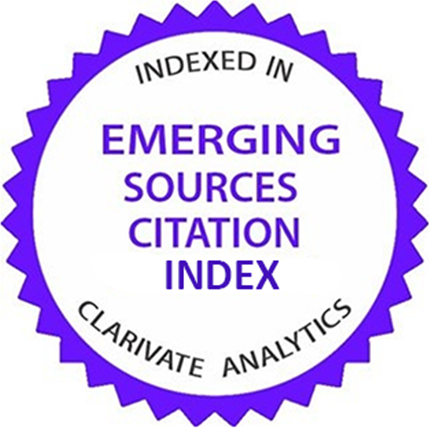Early introduction of African medical students into scientific research: a viewpoint and literature review of the importance, barriers, and proposed solutions
Abstract
The involvement of medical students in scientific research has been advocated recently in medical education. With the voices calling for evidence-based practice, scientific research skills emerge as a critical factor in preparing future generations of physician-scientists. However, Africa is a developing continent with limited financial resources, economic problems, conflicts, and political instabilities that slow the developments in medical education. The involvement of medical students of Africa in scientific research has taken a new shape recently with the formulation of student interest groups, collaboration based on personal communications, and non-governmental research societies. The present review highlights the importance, challenges, and solutions to involve African medical students in scientific research.
2. Glasziou P, Burls A, Gilbert R. Evidence based medicine and the medical curriculum. BMJ. 2008;337:a1253.
3. Cluver J, Book S, Brady K, Back S, Thornley N. Engaging medical students in research: reaching out to the next generation of physician-scientists. Acad Psychiatry. 2014;38(3):345-9.
4. Brown NJ. Developing physician-scientists: Carpe Diem. Circ Res. 2018;123(6):645-7.
5. Ebert BL. Generations of physician-scientists. J Clin Invest. 2018;128(10):4208-12.
6. Müller KE, Solberg CT. Student research in the medical curriculum: experiences from Norway. Acad Med. 2017;92(4):431.
7. Riley SC, Morton J, Ray DC, Swann DG, Davidson DJ. An integrated model for developing research skills in an undergraduate medical curriculum: appraisal of an approach using student selected components. Perspect Med Educ. 2013;2(4):230-47.
8. Park KH, Kim TH, Chung WJ. Implementation of the medical research curriculum in graduate medical school. Korean J Med Educ. 2011;23(2):103-10.
9. Harasym PH, Tsai TC, Hemmati P. Current trends in developing medical students' critical thinking abilities. Kaohsiung J Med Sci. 2008;24(7):341-55.
10. Jones CK. PSVI-6 undergraduate research experiences improve critical thinking ability of animal science students. J Anim Sci. 2019;97(2s):237-8.
11. Wallmann HW, Hoover DL. Research and critical thinking: an important link for exercise science students transitioning to physical therapy. Int J Exerc Sci. 2012;5(2):93-6.
12. Greysen SR, Dovlo D, Olapade-Olaopa EO, Jacobs M, Sewankambo N, Mullan F. Medical education in sub-Saharan Africa: a literature review. Med Educ. 2011;45(10):973-86.
13. Abu-Zaid A, Alkattan K. Integration of scientific research training into undergraduate medical education: a reminder call. Med Educ Online. 2013;18:10.3402/meo.v18i0.22832.
14. Dahrouge S, Armstrong CD, Hogg W, Singh J, Liddy C. High-performing physicians are more likely to participate in a research study: findings from a quality improvement study. BMC Med Res Methodol. 2019;19(1):171.
15. Sarubbi W. Research makes for better doctors, benefits patients. UCF Today [Orlando, Florida], 2019 April 2.
16. Jacob H. Why all doctors should be involved in research. BMJ. 2016:i164.
17. Burch VC, McKinley D, van Wyk J, Kiguli-Walube S, Cameron D, Cilliers FJ, et al. Career intentions of medical students trained in six sub-Saharan African countries. Educ Health (Abingdon). 2011;24(3):614.
18. Conradie A, Duys R, Forget P, Biccard BM. Barriers to clinical research in Africa: a quantitative and qualitative survey of clinical researchers in 27 African countries. Br J Anaesth. 2018;121(4):813-21.
19. Mostafa SR, Khashab SK, Fouaad AS, Abdel Baky MA, Waly AM. Engaging undergraduate medical students in health research: students' perceptions and attitudes, and evaluation of a training workshop on research methodology. J Egypt Public Health Assoc. 2006;81(1-2):99-118.
20. Rubagumya F, Nyagabona SK, Msami KH, Manirakiza A, Longombe AN, Maniragaba T, et al. Attitudes and barriers to research among oncology trainees in East Africa. Oncologist. 2019;24(9):e864–9.
21. Sreedharan J. Introduction of a research component in the undergraduate medical curriculum – review of a trend. Nepal J Epidemiol. 2012;2(3):200-4.
22. Kanmounye US, Tochie JN, Temgoua M, Mbonda AN, Endomba FT, Nkeck JR, et al. Barriers and facilitators of research in Cameroon (Part II) - an e-survey of medical students. PAMJ Clinical Medicine. 2020;3:179.
23. Kanmounye US, Tochie JN, Temgoua M, Mbonda AN, Endomba FT, Nkeck JR, et al. Barriers and facilitators of research in Cameroon (Part I) - an e-survey of physicians. PAMJ Clin Med. 2020;4(58).
24. Ávila M, Rodríguez-Restrepo A. The importance of research in undergraduate medical education. Medwave. 2014;14(10):e6032.
| Files | ||
| Issue | Vol 6 No 2 (2022): Spring (April) | |
| Section | Review article | |
| DOI | 10.18502/fem.v6i2.8719 | |
| Keywords | ||
| Africa Communication Evidence-Based Practice Medical Education Medical Students Physicians | ||
| Rights and permissions | |

|
This work is licensed under a Creative Commons Attribution-NonCommercial 4.0 International License. |










